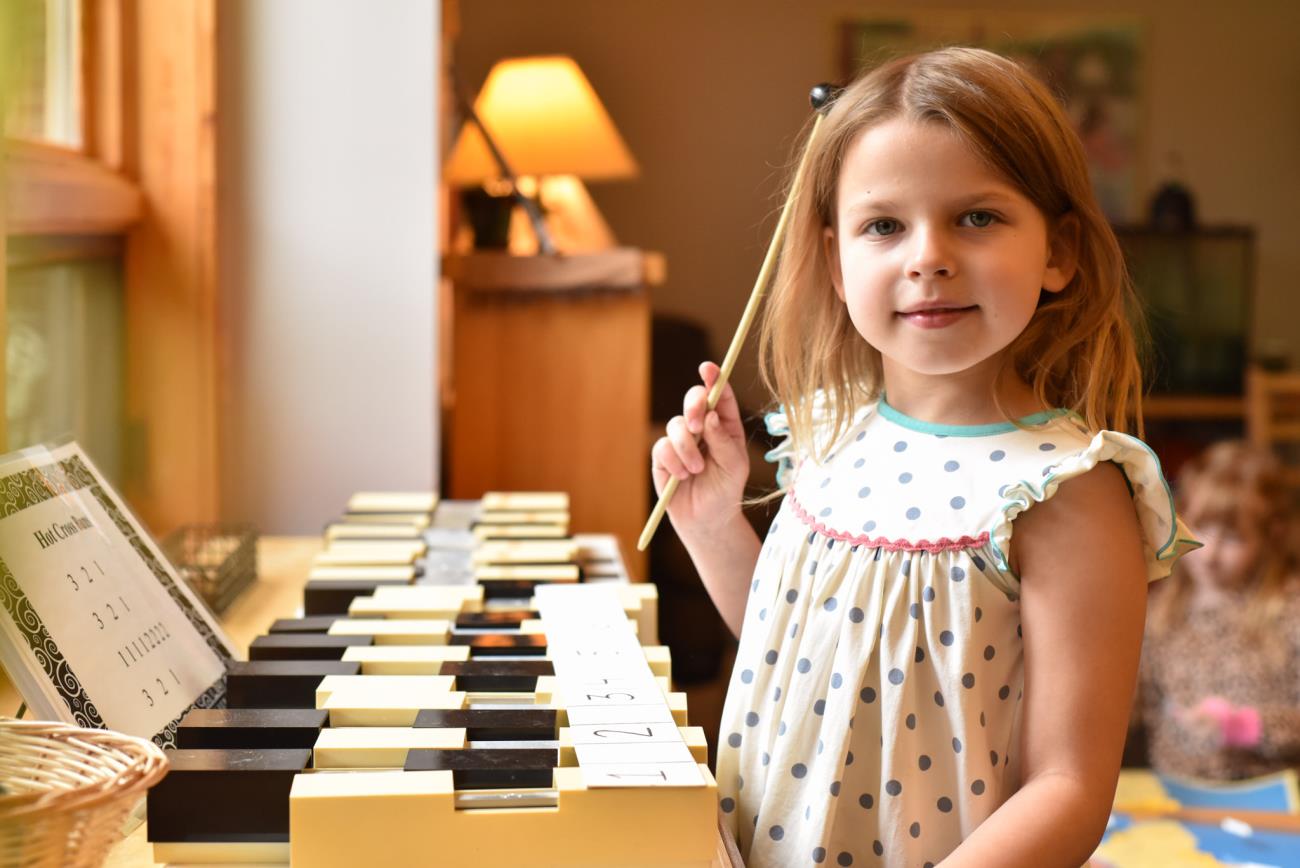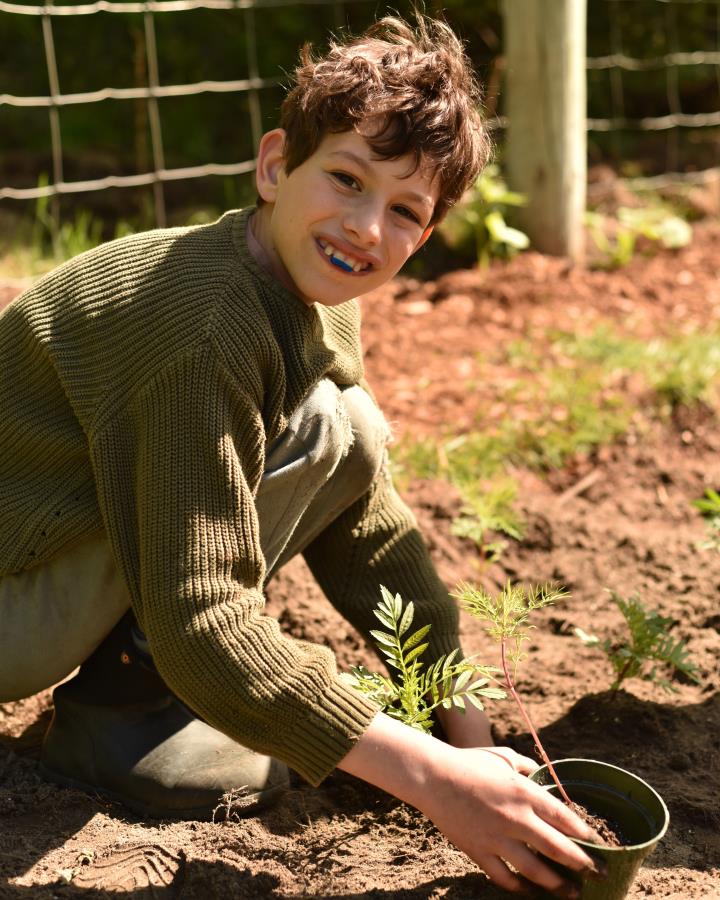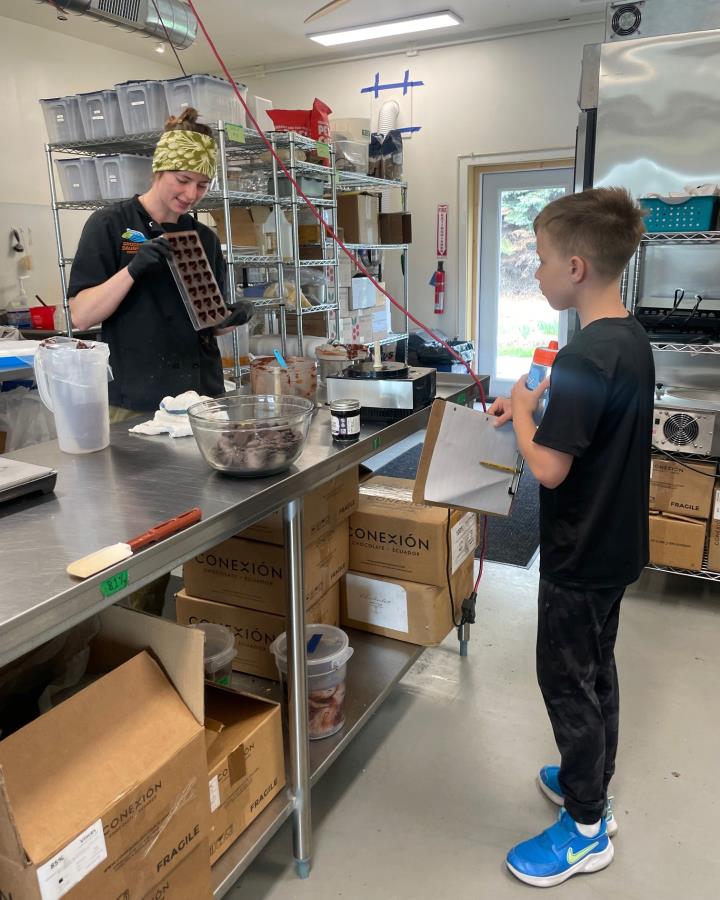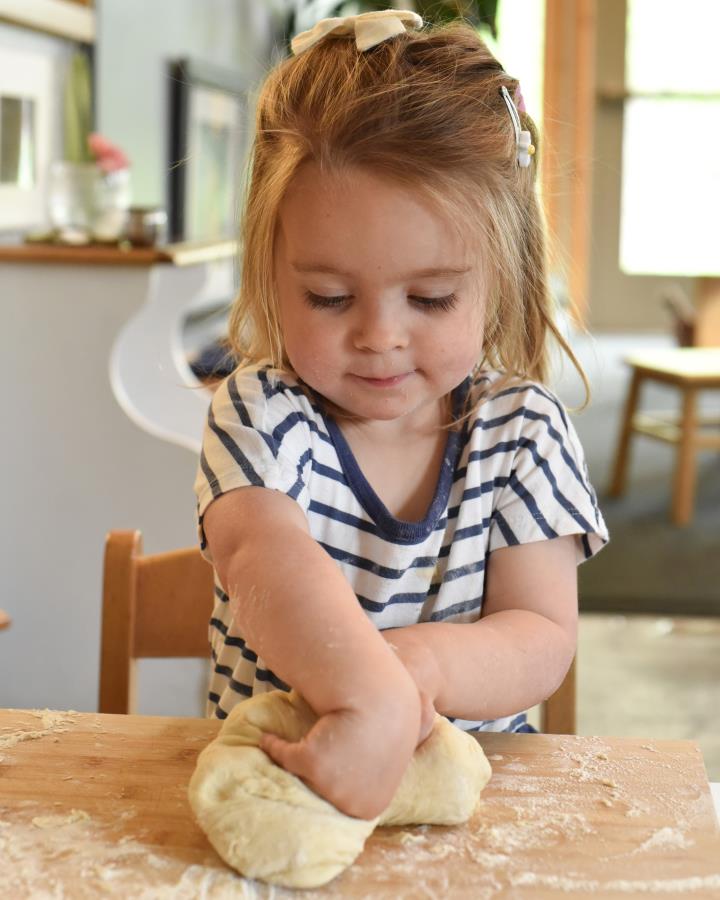In Montessori education, few ideas are as foundational—and as powerful—as interdependence. Dr. Maria Montessori spoke and wrote extensively about this concept: the idea that everything in the world is connected, not just loosely, but deeply and necessarily. Interdependence means that everyone and everything depends on everyone and everything else. Practicing this idea helps children develop skills that will support how they contribute to society and interact with humans and nature as they grow and develop.
In our elementary classrooms, we begin exploring this idea in a concrete, relatable way—through The Story of Bread, a staple food that has sustained humanity for over 10,000 years.
We introduce a material titled Where Do We Get Our Food? – the first level focused on bread. It’s a simple question with a wonderfully complex answer. The children are guided through the process of discovering the many hands, tools, natural elements, and systems required to bring a slice of bread to their plate. This is just the first step in a larger arc of lessons, followed by Meat and Cotton, continuing into lessons on What the Farmer Needs, What the Toolmaker Needs, and What the Farmer Produces.
These explorations build upon the children’s earlier work with the Fundamental Needs of Humans. This foundational work involves identifying and examining both the material needs essential for human survival and the spiritual needs that bring meaning and purpose to life, such as art, culture, and philanthropy. It also emphasizes the idea that we can truly pursue the latter only once our basic survival needs have been met.
These lessons are not just about food or farming. They are an introduction to the vast, invisible network of cooperation and community that supports even the most ordinary part of a child’s day. When a child eats toast at breakfast or a sandwich at lunch, they are participating in a long chain of interdependence involving farmers, millers, truck drivers, grocery workers, cooks, the weather, the soil, and so much more.
As children absorb this concept, they begin to understand a simple but profound truth: every living thing relies on others to thrive. This realization shapes how they see the world. It becomes the foundation for understanding migration, conflict, and what happens when people’s fundamental needs go unmet. These are not abstract ideas—children see them play out when families move, when someone asks for help, or when they feel moved to donate money or raise funds for a cause. These moments are signs that they’ve noticed a need and believe they can respond.
Montessori believed that if we taught children to understand and live by the principle of interdependence, peace would be a natural outcome. Through these stories and lessons, we hope to sow the seeds of that understanding. And in doing so, we are not only educating children—we are shaping more compassionate citizens for the future.
This summer, consider baking bread from scratch with your child. Talk about where the ingredients come from and how they reach your kitchen. Or visit a local bakery and ask the baker, “How many people helped make this bread?” Let the inquiry stretch back to the farmer who planted the first grain seed.
Montessori reminds us that true education nurtures both the mind and the heart. It teaches us that our greatest strength lies in our connections with each other and with the world around us. If we raise children to truly believe that we belong to one another, imagine the world they could create.



